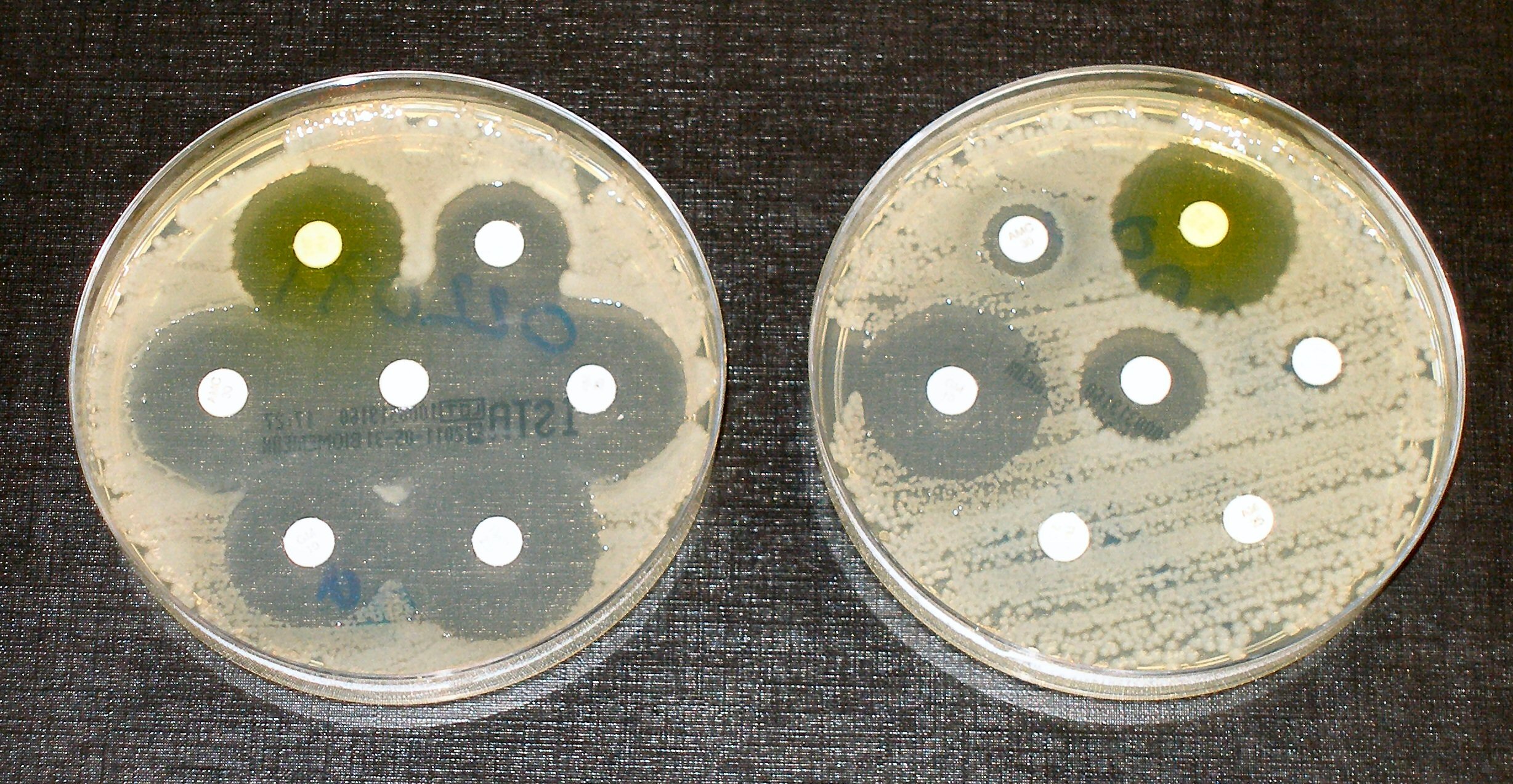Unhelpful Immunities

Could diseases evolve an immunity to magical healing?
About thirteen years ago, I ran a game where one of the main NPCs was immune to magic. A drug-lord and information broker, the character had taken full advantage of his immunity; unable to be magically tracked and immune to damaging spells, he had built up a powerful empire which his enemies lacked the tools to combat. Deadly as he was, he eventually met his end exactly how one would expect: at a crucial moment when the PCs needed him alive, he was attacked by their enemies and died of his wounds when their cleric was powerless to heal him. I would have liked to have some clever mechanic to explain why he was immune to magic, but the truth is, I simply ripped off the idea behind the film Unbreakable; if there are people in the world who are so naturally infused with magic as to become sorcerers, it’s logical (sort of) to assume that there are others who have such absolute minimal affinity for magic that it can’t even though them. Not a very logical explanation when you start to look at it, but it was good enough for my players.
The question is, could there potentially be humans who evolve (or mutate) some sort of absolute immunity to magical healing? And if so, could diseases evolve the same immunity?
Drug-resistant bacteria and viruses are a major problem in modern medicine. Resistant bugs don’t just appear out of nowhere; they’re arguably the single best evidence for evolution ever documented. Let’s say you get a petri dish and you grow some colonies of a bacteria, and then you add antibiotic to the dish. The vast majority of the bacteria will die, and just by random chance, a few will live and begin to reproduce to fill all the newly empty space in the dish. If one bacterium happens to have a gene that confers a partial defense against that antibiotic – their cell wall is built a little bit differently so the drug can’t break it, or they have a slightly different shape to some enzyme that the antibiotic normally inhibits – then that one bacterium is a bit more likely to survive than its neighbour. When the dish is full again, instead of that antibiotic-resistant strain being one bacterium in a million, perhaps now it’s one hundred out of a million. You add the same antibiotic to the dish, and this time, after the survivors grow back, half of the dish is resistant. The bacteria haven’t necessarily magically developed some new toughness, but rather, living in an environment that gave a survival advantage to resistant organisms allowed them to out-compete the non-resistant organisms. Natural selection triumphs over fancy medication and people start to die for drug-resistant infections.
Could bacteria and viruses become immune to magical healing in the same way? It’s a hard question to answer because obviously we don’t know precisely how magical healing works (very few RPG sourcebooks being written from the point of view of molecular biologists). Let’s consider two possibilities that a storyteller might choose from:
1) Magical healing kills all “unhealthy” organisms in a body, instantly. In this case, because there are no resistant bugs left to reproduce, there’s no chance for that one-in-a-million mutation to be selected for. It’s not impossible that some bug out there is still immune to magic, but at least, casting remove disease doesn’t actually encourage the development of resistance. Given that magical healing in most game systems cures all symptoms of illness instantly, this is probably the way magical healing is meant to work.
2) Magical healing kills “enough” bugs. In real life, our antibiotics don’t kill 100% of all infectious organisms. Instead, their job is to kill enough bacteria that the body’s immune system can tackle what’s left. In fact, many of our antibiotics don’t kill bacteria at all, but rather paralyze them long enough for the body to kill them (such drugs are “bacteriostatic” rather than “bactericidal” and they still get the job done just fine). In this system, every single time that someone casts remove disease, there’s an infinitesimal increase in the number of magic-resistant bugs in the world, which is only a problem when you consider how many healing spells are being cast every day in a fantasy world.
Magic-resistant illnesses don’t have to be game-breaking. In real hospitals, a drug-resistant infection isn’t necessarily the end of the world; it just means that we switch to another antibiotic that doesn’t see as widespread use, in the hope that the bug won’t be resistant to that one. Similarly, when a cleric discovers that a skin infection or a pneumonia isn’t cured by remove disease, the first reaction shouldn’t be to panic, but to cast heal. Granted, most clerics in the world can’t actually cast heal, and so that’s where the story might become interesting …
More than four years ago, Dr. Eris Lis, M.D., began writing a series of brilliant and informative posts on RPGs through the eyes of a medical professional, and this is the one that appeared here on June 20, 2015. Lis is a physician, gamer, and author of the Skirmisher Publishing LLC OGL sourcebook Insults & Injuries, which is also available for the Pathfinder RPG system.






